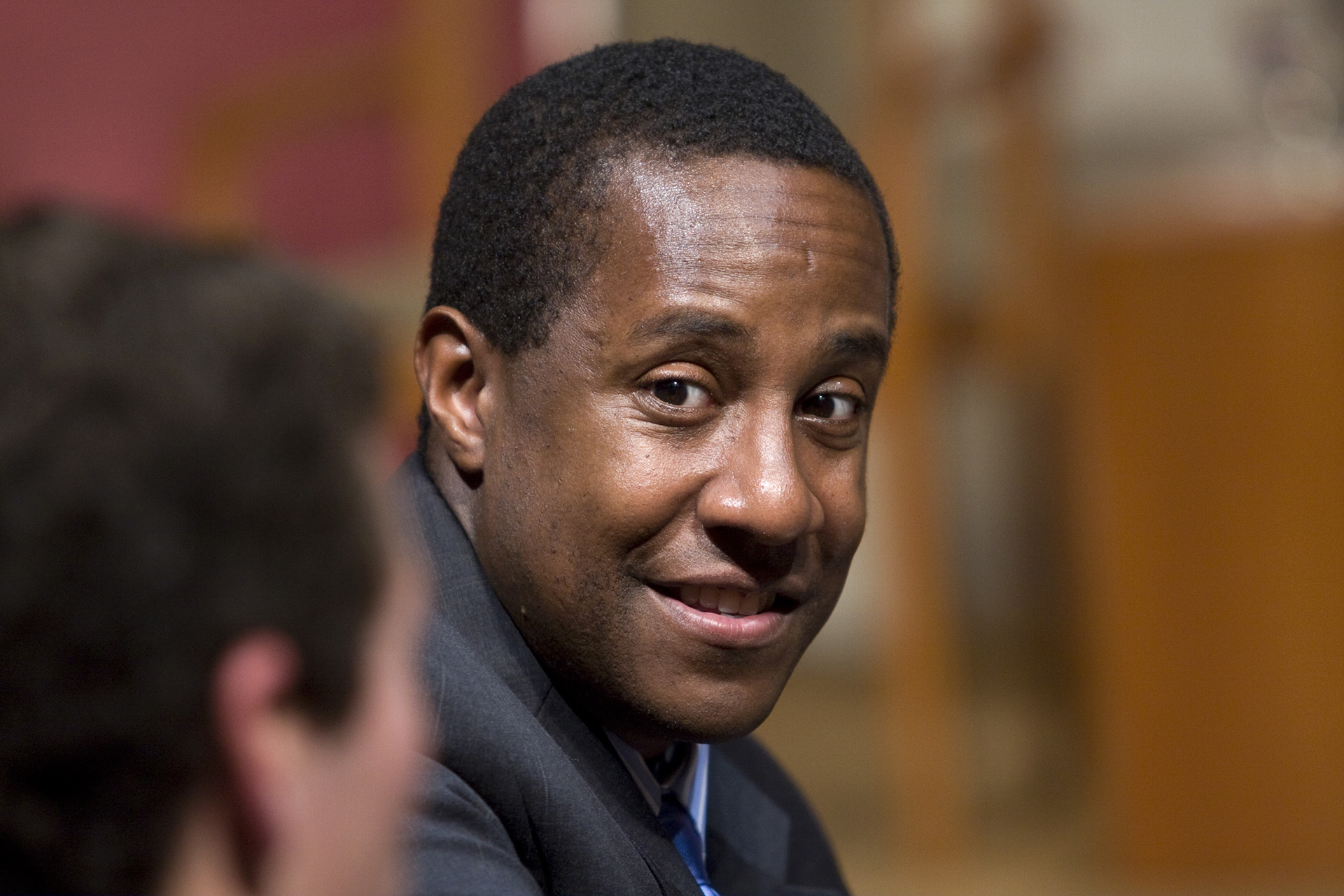
Harvard file photo
Setti Warren honored as lifelong public servant, remembered as bridge builder
Institute of Politics director, first elected Black mayor in Massachusetts ‘had superpower of knowing how to lift people up’
Setti Warren’s job as director of the Institute of Politics at Harvard Kennedy School involved working with political luminaries and important scholars.
But those who knew him said he was the kind of person who made everyone he met feel like they mattered, especially his students.
“He wanted us to feel like we were valued, and heard, and cared for,” said Summer Tan ’26, IOP vice president. “I remember even when he was still interim director, he had taken the time to know my name and would greet me every time we passed in the hallway, no matter how busy he looked or how important the person he was walking with was.”
Friends, students, faculty, and members of the Harvard community remember the popular IOP director and the first elected Black mayor in Massachusetts as an optimistic bridge builder who did politics the right way and inspired young people with his lifelong love of public service.
Warren died at the age of 55 at his Newton home on Sunday.
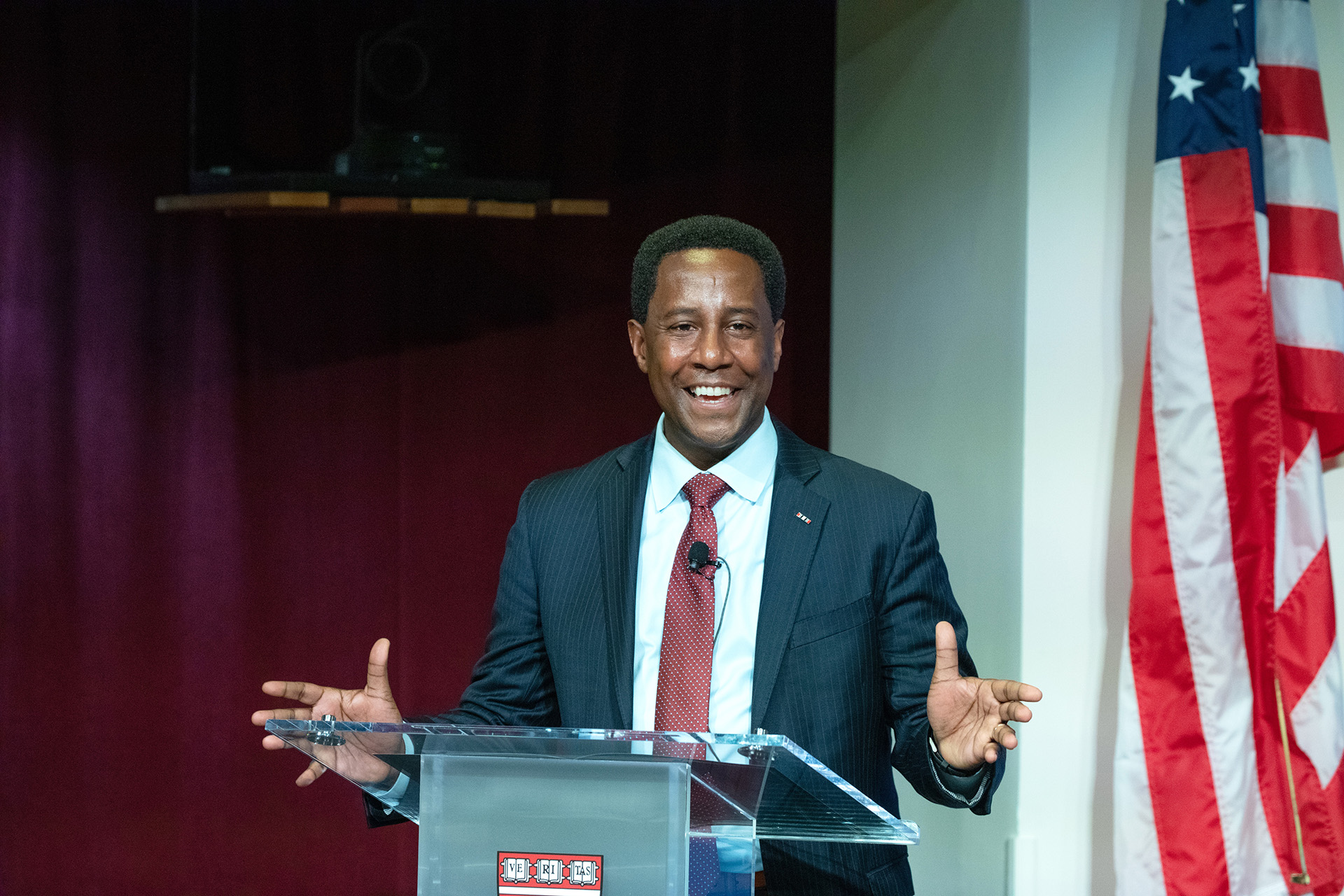
“Setti made public service seem less like a sacrifice than a secular sacrament, a calling that pulls people to be their best selves,” said Nancy Gibbs, director of the Shorenstein Center.
Photo courtesy of Harvard Kennedy School
“Setti had the superpower of knowing how to lift people up and create a shared sense of mission that was joyful. He listened hard, and he understood how to unlock the best in everybody,” said former U.S. Senator John Kerry, a longtime ally.
Warren worked on Kerry’s 2004 presidential campaign and later joined the Massachusetts Democrat’s Senate staff. Kerry, who served as U.S. secretary of state during the Obama administration, called Warren a rare role model in this pugnacious political era.
“I hope that a big part of his legacy will be that he inspired a lot more Setti Warrens to carry on that tradition which our democracy needs so much right now. America needs more people with Setti’s moral compass who do the right thing for the right reasons.”
In an announcement to the Harvard community, Kennedy School Dean Jeremy Weinstein and David Deming, dean of Harvard College, called the news “heartbreaking” and recounted Warren’s nearly four decades of public service, from the military to politics to academia, as “an example to us all.” Colleagues say he was a man of strongly held principles and deep faith who kept a curious and open mind.
“America needs more people with Setti’s moral compass who do the right thing for the right reasons.”
John Kerry
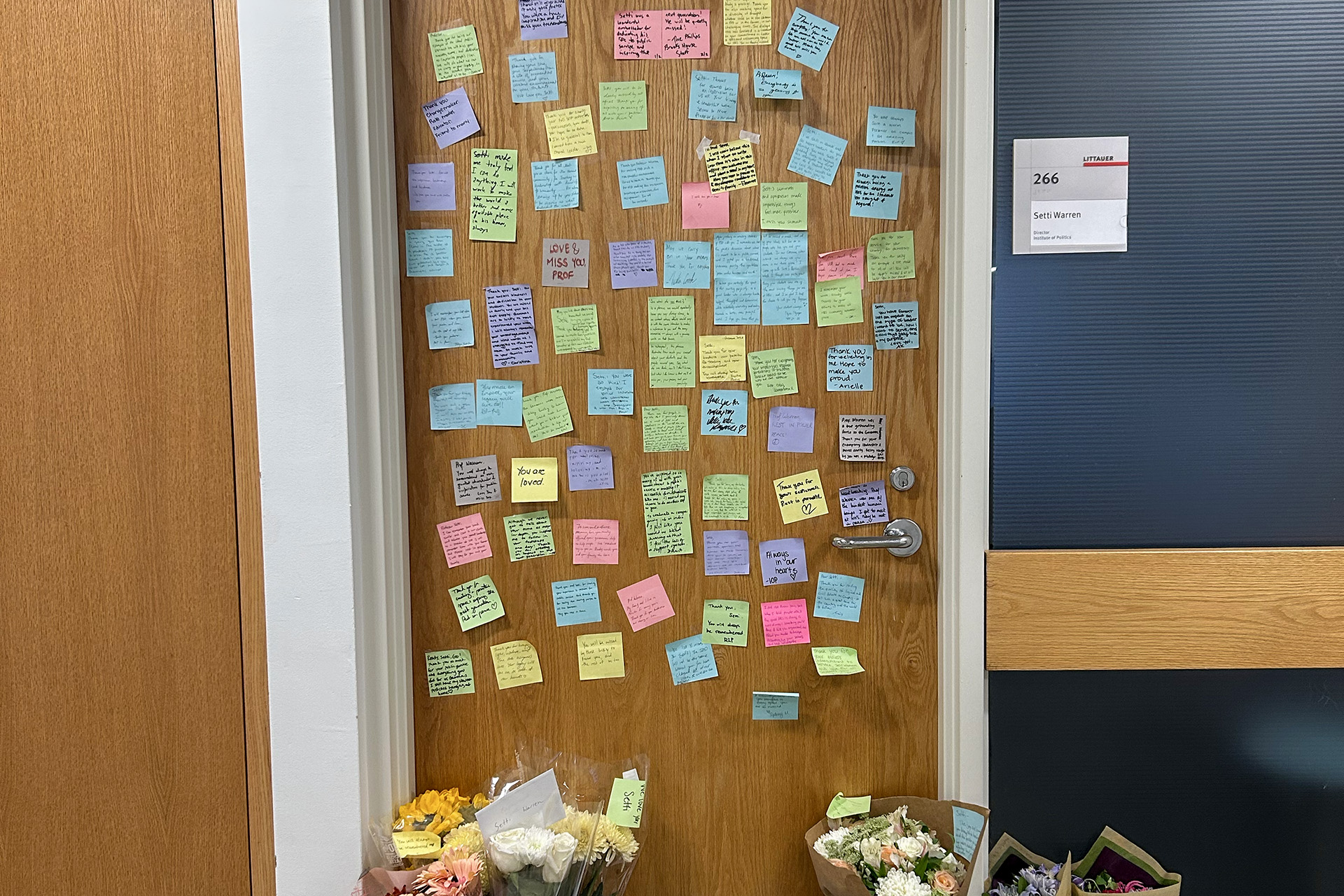
Tributes of notes and flowers collect outside of Setti Warren’s office at the Kennedy School.
Photo by Nikki Rojas
“Setti lived and modeled the values that infuse this School: excellence, enterprise, collegiality and a muscular commitment to service,” said Nancy Gibbs, director of the Shorenstein Center on Media, Politics and Public Policy, where Warren served as executive director in 2018 before joining the IOP in 2022.
“Setti made public service seem less like a sacrifice than a secular sacrament, a calling that pulls people to be their best selves,” she said.
An Iraq War veteran, Warren entered politics in 1995, campaigning for President Bill Clinton’s re-election. He then went to work in the Clinton administration from 1996 to 2000.
In 2010, Warren, a Democrat and lifelong Newton native, was elected that city’s mayor, serving two terms. He later made two briefs runs at higher office. In 2011, he entered the race for U.S. Senate, a seat won by then-Harvard Law School professor Elizabeth Warren. In 2017, he ran for governor of Massachusetts before coming to Harvard in 2018.
Many recall Warren’s unwavering dedication to his family, his students, and his constituents, along with his generosity of time and spirit.
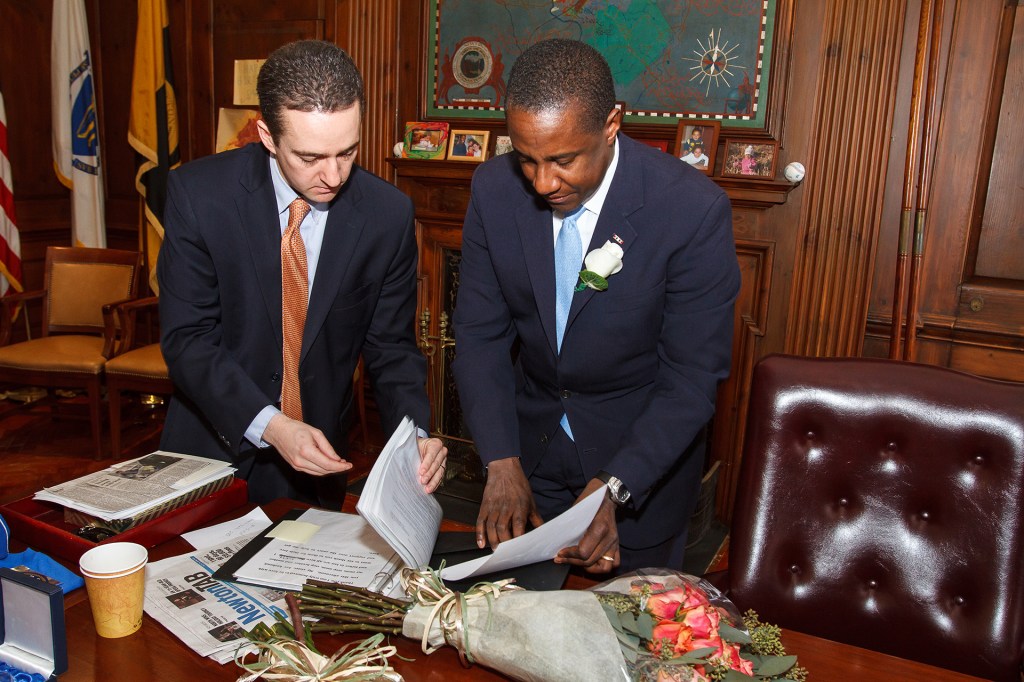
Aaron Goldman, now director of the JFK Jr. Forum, with Warren in Newton City Hall in 2014.
Photo by Russ Campbell
“He was focused; he was energetic; he was always thinking about what was next and what else [needed] to be done, but he also had so much fun in the various roles that he held,” said Aaron Goldman, director of the JFK Jr. Forum, who began working with Warren in 2005 and held several top leadership roles during Warren’s eight years in Newton City Hall.
“He always wanted to hear about people’s days and hear about people’s lives and always seemed to find a common connection with somebody and something to reminisce about. Even in stressful, challenging moments, which there were plenty of, he always seemed to find the silver lining or the good in whatever we were dealing with,” Goldman said.
Warren is survived by his wife, Tassy Warren, who is co-executive director and chief strategy officer at Harvard’s Center on the Developing Child. The couple have two children, Abigail and John. “To have him as a friend and colleague was to have a true champion in your corner,” said Liz Schwartz, the Shorenstein Center’s communications director.
For students, who left flowers and posted notes on his office door, Warren was much more than some school administrator. His office was a warm, welcoming refuge whose door never seemed to close.
Senior Ethan Kelly, a former IOP vice president, felt that Warren was looking out for him and credits Warren with sparking his pursuit of a career in politics.
“He was more than a director to me — and many others. He was a friend, an ally, a parental figure, a mentor, a public servant. He was everything someone ought to be if they choose to pursue a career in public service,” said Kelly.
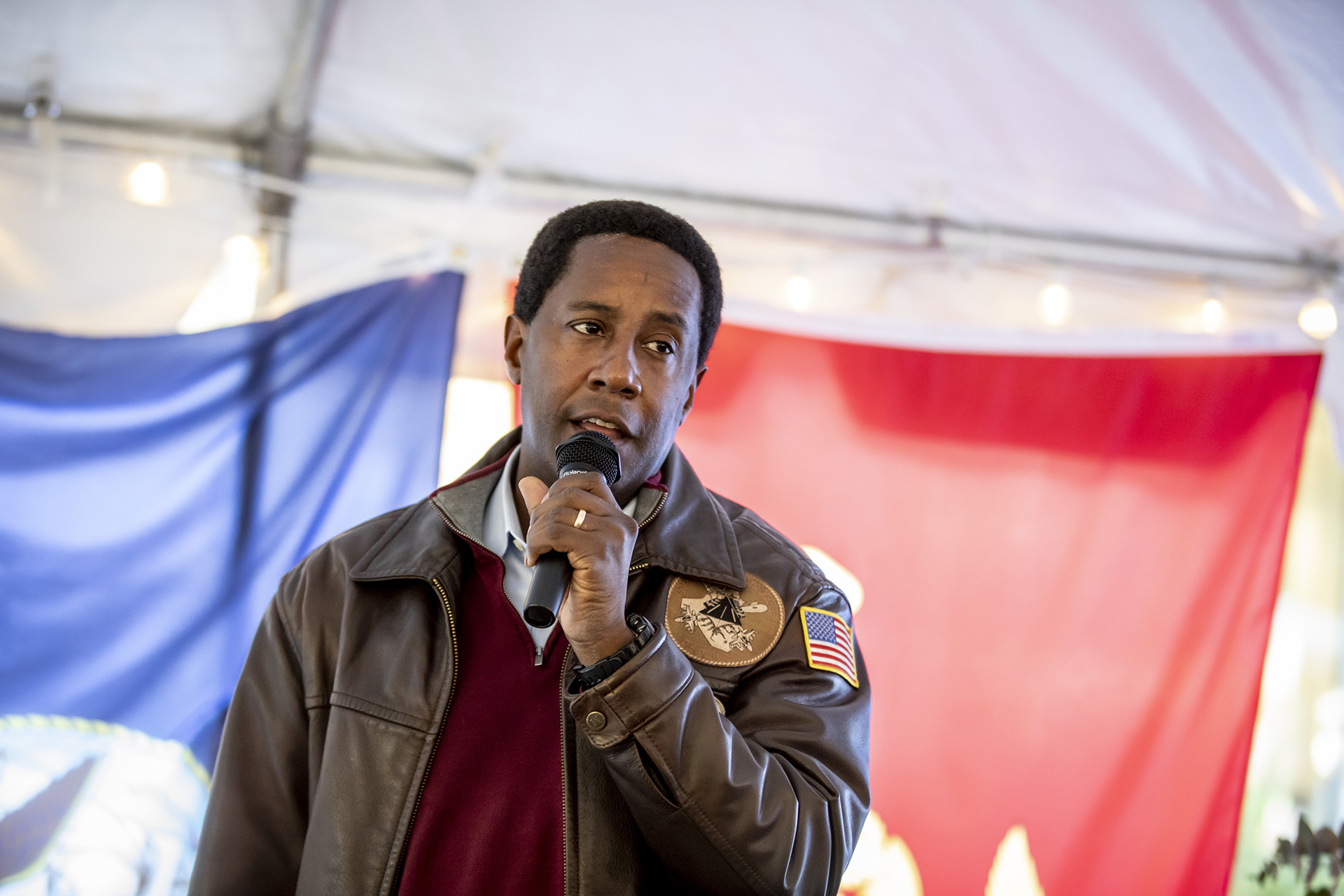
Warren, an Iraq War veteran, speaks during a Harvard Veterans Day event in 2021.
Harvard file photo
Weinstein said, “Setti always encouraged students from across the political spectrum to run toward politics rather than run away from them, just like he did throughout his life. His students loved him, and he will live on through their legacies of service.”
Longtime friends say whether guiding young people or trying to solve constituents’ problems, Warren really was who he seemed to be.
“Setti cared deeply about others and was genuinely motivated to make the world a better place,” said Brigid O’Rourke, IOP director of communications, who has known Warren for almost 20 years. “That’s not something I say lightly. That’s who he was at his core. A kind and thoughtful man who was invested in his community and wanted the best for everyone, not just those who agreed with him.”




